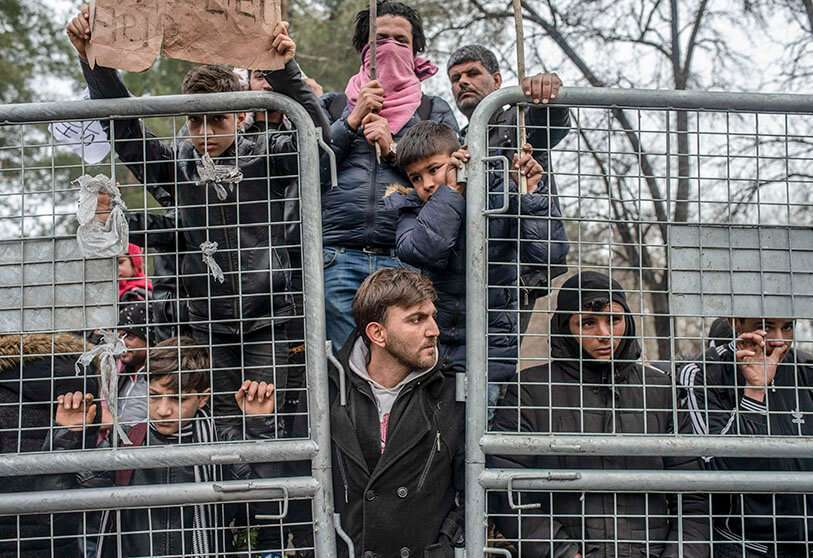Syrian refugees in Turkey are plunged into a crisis that continues to escalate

The situation of refugees from Syria in Turkey is extremely complicated due to the fact that most of them are not allowed to work legally, forcing them to seek informal jobs in sectors such as construction, hospitality and agriculture. This complex reality has been compounded by the COVID-19 pandemic that has hit refugees in the country presided by Recep Tayyip Erdogan hard. The debt accumulated by the refugees has increased by up to 50% in just one year, obviously increased by the devastation caused by the crisis resulting from the pandemic.
The vast majority of the nearly 4 million Syrians who have been forced to leave their country to seek a new life in Turkey live below the poverty line, which has led to mounting debt. "As a result (of the closure of the hospitality industry), it limited people's ability to earn and then pay for basic necessities, be it water, medical care, electricity. And as a result, the risk of falling into more difficult measures whether it's going into debt, which is one of our main findings, was a result of that," said Jonathan Brass, Turkey operations manager for the International Federation of Red Cross and Red Crescent Societies, in an interview with Voice of America.

Research by the Turkish Red Crescent and the International Federation of Red Cross Societies warns that "refugees' resources and coping strategies have been depleted, debt levels are rising and, if restrictions continue, the needs of refugees could increase dramatically". Therefore, if the Erdogan government's labour restrictions on refugees are not relaxed, the refugees' situation will only worsen and consequently make their debt even greater.
The International Federation of Red Cross and Red Crescent Societies provides cash assistance to refugees in Turkey, using money from the European Union, which was agreed as part of the deal struck between Brussels and Ankara in 2016 to stem the flow of refugees into Europe. However, the arrival of the pandemic has completely changed the perception of the situation and the action plan of both the EU and the Turks. That is why vaccination will be fundamental for the refugees' immediate future and Erdogan's government is trying to make the process as quick as possible.

In addition, refugees will have access to vaccinations even though the president has reluctantly had to make this possible. "The launch of vaccinations is a very important factor, and while refugees have full access to vaccinations, to medical care, there are all sorts of barriers they face with respect to language or information about how to access those vaccinations," explained Jonathan Brass about the difficulties refugees face, which Erdogan's people do not seem to be concerned to address.
The country has been open since 1 June, but the emergence of the various strains has led to the suspension of some flights. There will be no connections to Brazil, South Africa, India, Bangladesh, Nepal and Sri Lanka until further notice, raising concerns about a possible setback in the recovery of the economy and tourism within the Turkish government. However, the International Federation of the Red Cross remains optimistic about the refugee situation and hopes that restrictions will soon be eased, opening up more opportunities for refugees to find other sources of income.








